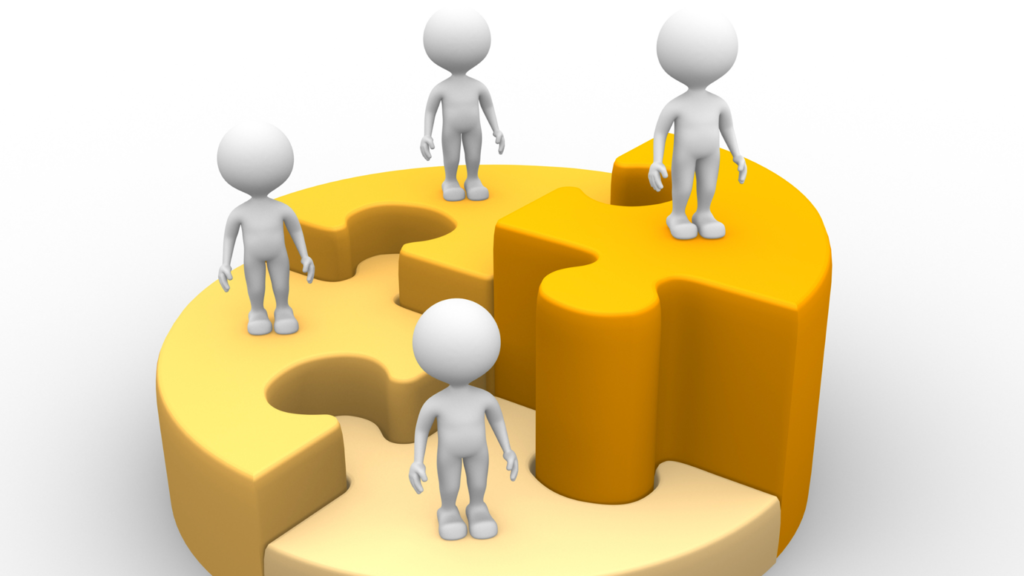Is Intelligence limited to IQ?
As we explore the fascinating world of intelligence, we will uncover the truth about IQ and the limitations of the human intellect. Beyond traditional measures of intellect, this article explores a wider range of aptitudes that impact our perception and engagement with the natural world.
When Regular Intelligence Exams Are Inadequate
Intelligence is not defined by a single numerical score. Intelligence tests based solely on IQ are becoming obsolete. It is widely understood that intelligence encompasses more than just analytical and logical thinking; it also includes creative and social intelligence, practical abilities, and a strong foundation in logic and reasoning. What gives each of us our unique mental landscape is the sum of these diverse abilities.

Nevertheless, utilizing IQ tests and other traditional assessments of intelligence is not without its flaws. Exams like these focus solely on measuring linguistic and logical abilities, ignoring other, no less important aspects of intellect. Individuals’ true capabilities are disregarded by this narrow perspective. Skills and abilities that don’t conform to the stereotype of “smart” people aren’t considered.
Exploring Intelligence Beyond IQ
By casting doubt on the validity of the assumption that intelligence can be quantified, we rebel against the current quo. Our mission was to delve into the myriad intelligence manifestations by utilizing cutting-edge research and interesting anecdotes. Does the fact that some of us don’t fit the typical profile of intellect mean that our latent talents go untapped?
The Assumption of Various Intelligences
Howard Gardner, a developmental psychologist, revolutionized our understanding of intelligence with his theory of multiple intelligences. According to Gardner, there is more than one way to define intelligence. Some examples include musical, spatial, bodily-kinesthetic, interpersonal, logical, and linguistic abilities.
According to this view, which highlights the diverse range of human cognitive abilities, it is important to value and promote different forms of intelligence. It argues for a broader perspective on intelligence and its growth, rather than depending on a single indicator.
Success through the Use of Emotional Intelligence
In addition to IQ, emotional intelligence (EI) is a crucial but frequently neglected factor. Being emotionally intelligent (EI) means being able to recognize, understand, and manage your own and other people’s emotional states. Success in one’s career and in life depends on it because of the many ways in which it influences relationships, decision-making, and overall health.
Those that score high on the emotional intelligence test excel in managing their own emotions, reading and responding to the emotions of those around them, and finding peaceful solutions to conflicts. They are more equipped to deal with the complexities of modern life, are excellent leaders, and have a natural talent for connecting with people. If you want to be a better person, build stronger relationships, and realize your full potential, you need to work on your emotional intelligence.
The Role of Creativity in Intelligence
Creativity is another aspect of intelligence that is hard to measure with traditional methods. The ability to think creatively is defined as the capacity to generate new ideas and approach problems from various perspectives. Creativity, an essential part of intelligence, is the driving force behind progress and invention in a wide range of domains, not limited to the arts.
Creative people are characterized by their capacity to see connections where none existed before, come up with original solutions to challenging challenges, and uncover previously unknown possibilities. By introducing fresh perspectives and ideas, they can alter the course of history. The only way to unleash the full potential of the human mind is to foster an environment that is conducive to creativity and innovation.
Importance of Social Intelligence in Individual Relationships
Intelligence is a trait that affects every one of our interactions, not just our own. What we mean when we speak about social intelligence is the ability to understand and navigate social dynamics effectively. It includes qualities like empathy, the capacity to read and react to social cues, and the ability to build true connections.
Those with high EQ tend to thrive in collaborative settings where there is room for debate, compromise, and teamwork. Their understanding of human nature is extensive, and they can adapt their strategy to fit any social situation. Strong interpersonal skills, conflict mediation abilities, and the ability to create harmonious communities all stem from a lack of social intelligence. An integral aspect of intelligence, it influences our daily life in the workplace and at home.
Practical Intelligence and Its Role in Everyday Life
While intellectual pursuits are certainly worthwhile, practical intelligence is equally important for getting through the day. Having “street smarts,” or the ability to effectively use one’s knowledge and skills in real-world situations, is one way to describe practical intelligence. It requires creative thinking, adaptability, analysis, and problem-solving abilities.
To overcome challenges, make sound decisions, and achieve one’s goals in life, one needs a high degree of practical intelligence. Because of their exceptional environmental awareness, they effortlessly seize opportunities and triumph over obstacles. To succeed in many things, like handling one’s own finances, climbing the corporate ladder, and solving everyday difficulties, one needs a high degree of practical intelligence.
Promoting and Strengthening Diverse Intelligences
Recognizing the complex nature of intelligence opens us a multitude of possibilities for personal growth. In doing so, we are able to appreciate our own traits while also acknowledging our strengths and opportunities for improvement. A thorough and systematic approach is necessary for the development of varied forms of intelligence.
Some things that can help you grow your emotional intelligence are thinking critically, doing things that encourage empathy, and speaking up for yourself often. Being receptive to new ideas, engaging in creative activities, and viewing failures as learning experiences are all ways to foster creativity. To increase your social intelligence, practice active listening, develop your capacity for empathy, and be receptive to different perspectives. To develop your practical intelligence, practice problem-solving, apply what you’ve learned in real-world situations, and never stop studying.
How IQ Influences Professional and Personal Growth
A person’s professional and personal life can only progress with the help of intelligence. Consequently, it dictates our proficiency in an ever-changing world and our rate of skill acquisition. Discovering and developing one’s own intellect style is the key to unlocking one’s full potential and experiencing true happiness.
In business, there are other indicators of intelligence than a high IQ and academic achievements. A well-rounded skill set, encompassing not just technical knowledge but also EQ, creativity, and social intelligence, is highly prized in today’s employment market. If you want to climb the corporate ladder, lead high-performing teams, and contribute to your company’s success, you need to be proficient in all three forms of intelligence.
Final Thoughts on Intelligence
As our investigation of intelligence draws to a close, its multifaceted character is becoming more apparent. There is no objective way to measure intelligence because it is not a fixed attribute. A person’s abilities impact not only their perception and interaction with the world, but also their talent set. We may unlock the limitless potential within each individual’s intellect by taking a more comprehensive view of intelligence and recognizing its diverse manifestations.
We owe it to the intricate web of human thought to abandon ideas that have outlived their usefulness. In order to give due credit to the various intelligences that people possess, it is necessary to do so. The facts regarding IQ and the boundaries of intellect can only be unveiled using this approach.



